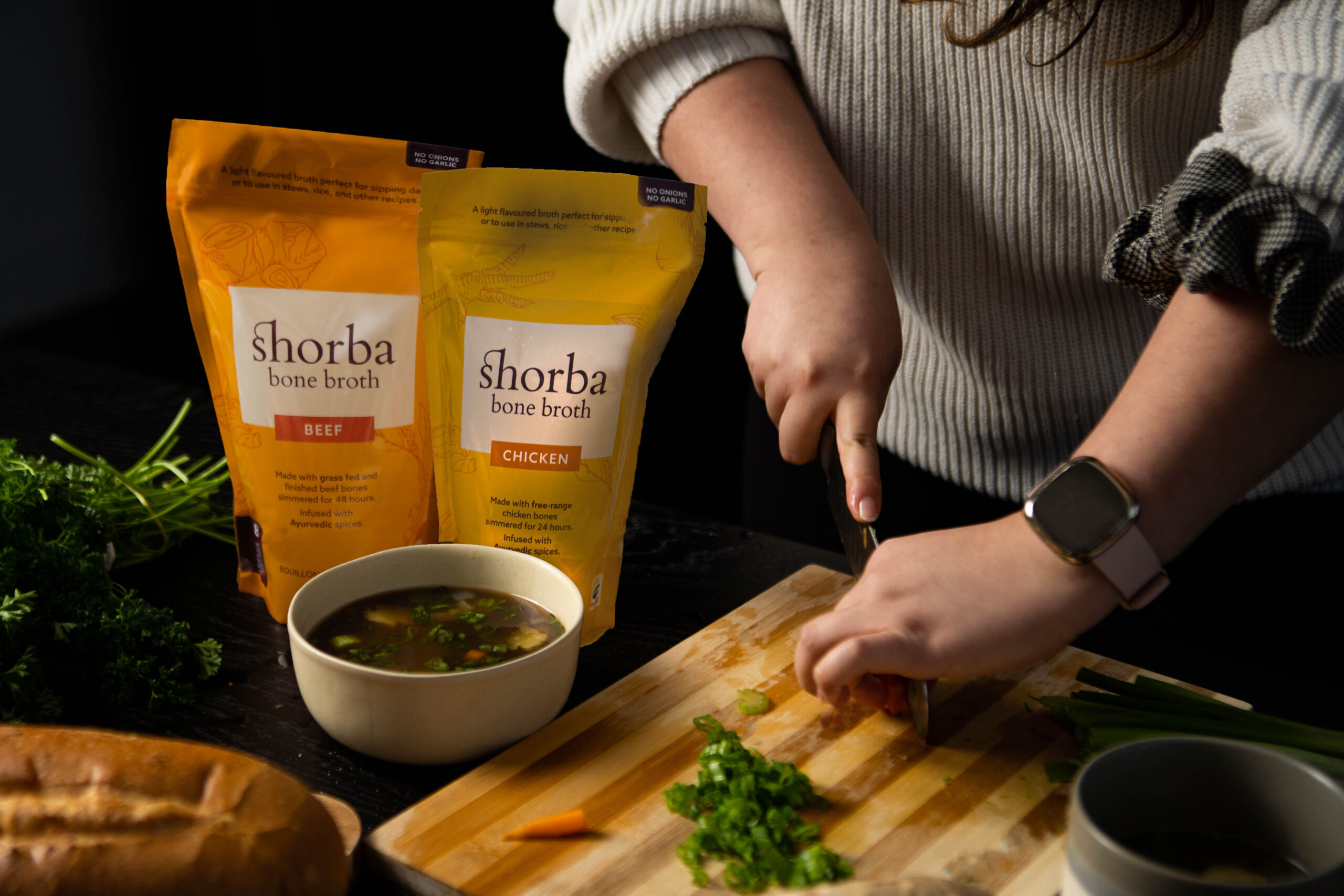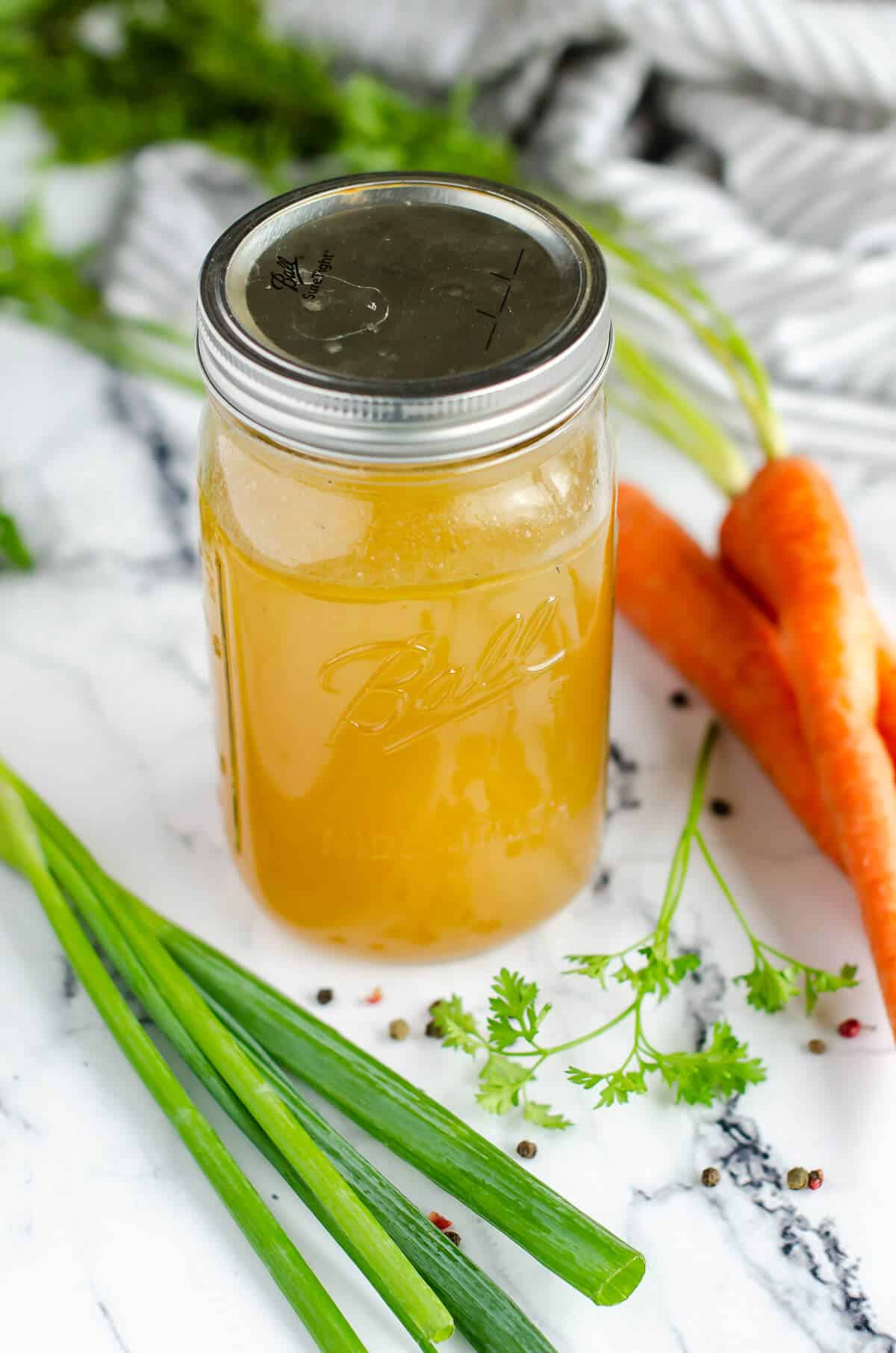Step-by-Step Method to Prepare Chicken Bone Broth for Babies
Step-by-Step Method to Prepare Chicken Bone Broth for Babies
Blog Article
The Value of Healthy And Balanced Food: Why Bone Broth Is a Wonderful Choice for Infants
Bone broth stands out as a nutrient-dense option, supplying essential vitamins and minerals that support growth and advancement. What are the finest means to present bone broth to your little one?
Nutritional Advantages of Bone Broth for Newborns
When you present bone broth to your baby's diet, you're providing a nutrient-dense food that supplies various health and wellness benefits. Loaded with vital vitamins and minerals, bone broth contains calcium, magnesium, and phosphorus, which sustain your baby's expanding bones. It's additionally abundant in collagen, helping in the development of healthy skin, joints, and connective cells.
In addition, bone broth is an exceptional source of amino acids like glycine and proline, which play a substantial role in total growth and muscular tissue growth. These nutrients aid promote a solid immune system, establishing a strong foundation for your child's health and wellness.
In addition, bone broth is very easy to digest, making it a gentle option for your little one. By including this wholesome food right into their meals, you're ensuring they receive necessary nutrients required for their overall wellness. Go in advance and make bone broth a staple in your infant's diet!
Just How Bone Broth Sustains Digestion
Bone broth is packed with necessary nutrients that can really profit your child's food digestion. It advertises gut health and aids with nutrient absorption, making it a great addition to their diet. By including bone broth, you're setting the phase for a healthier digestive system.
Nutrient-Rich Make-up
One of one of the most nutrient-rich foods you can introduce to your baby's diet regimen is bone broth, which is packed with vital minerals and amino acids that sustain healthy food digestion. Rich in collagen, bone broth aids enhance your child's intestine cellular lining, making it less complicated for their body to absorb nutrients. It offers gelatin, which helps in damaging down healthy proteins, promoting smoother food digestion. In addition, the broth consists of necessary electrolytes like potassium and magnesium, ensuring your baby stays hydrated and balanced. The amino acids, such as glycine and proline, play an important duty out of commission tissues and sustaining total health (chicken bone broth). By incorporating bone broth into your child's meals, you're offering them a wholesome food that supports their digestion system properly.
Advertises Digestive Tract Wellness
As you present bone broth into your infant's diet, you'll find it not just nourishes but also advertises digestive tract wellness successfully. Rich in gelatin, bone broth helps relieve the digestive system, decreasing inflammation and supporting a healthy intestine lining. In addition, the amino acids found in bone broth, such as glycine, help in digestion and can aid protect against typical belly troubles.
Aids Nutrient Absorption
Introducing bone broth not just supports intestine health but also plays a considerable duty in helping nutrient absorption. When you give your baby bone broth, you're offering a rich source of minerals and amino acids that boost their digestive processes. The jelly in bone broth assists to relieve the gut cellular lining, improving its ability to take in important nutrients.
Enhancing the Immune System With Bone Broth

Furthermore, bone broth has glycosaminoglycans, like glucosamine, that can enhance the body immune system's capacity to work effectively. This implies it not just helps in building defenses but also aids in healing from ailments. By including bone broth right into your child's diet, you're providing an all-natural source of nutrients that advertises health. So, take into consideration making bone broth a staple in your baby's meals, as it can play a vital duty in their immune health and advancement.
Easy Ways to Include Bone Broth Into Child's Diet plan
Integrating bone broth into your infant's diet regimen can be simple and fulfilling. Beginning by mixing a percentage of bone broth into pureed vegetables or fruits. This adds flavor and nutrients without overwhelming your little one. You can additionally use bone broth as a pop over to this web-site base for soups or stews that you prepare for the family members, guaranteeing your baby gets a preference of scrumptious, healthier meals.
Another option is to serve bone broth on its own. Warm it up and offer it in a sippy mug or little dish-- it's a wonderful way to introduce brand-new tastes. If your infant enjoys grains, take into consideration cooking rice or quinoa in bone broth rather of water for added nutrition. Lastly, you can ice up bone broth in ice trays, making it very easy to add a cube to numerous dishes whenever you want. These techniques will assist your infant reap the benefits of bone broth easily!
Homemade vs. Store-Bought Bone Broth: What to Pick
Which is better for your baby: homemade or store-bought bone broth? Self-made bone broth provides you total control over the active ingredients. You can select premium bones, natural veggies, and herbs, guaranteeing your child gets one of the most nutrients without additives or preservatives. Plus, making it in the house can be a gratifying experience, permitting you to bond with your baby while preparing wholesome food.
On the other hand, store-bought alternatives are hassle-free and save you time. They typically have preservatives and might not match the deepness of taste and nutrition you get from homemade broth. If you decide for store-bought, look for brand names that are natural and without ingredients.
Ultimately, if you have the time and resources, homemade bone broth is the remarkable choice for your baby's health and wellness. If you're short in a timely manner, pick a quality store-bought alternative as a back-up.
Age-Appropriate Bone Broth Serving Tips
As your child expands, it's vital to customize bone broth offering recommendations to their developmental phase. For babies around six months, begin with a few spoonfuls of diluted bone broth (chicken bone broth).
When your baby reaches around 8 months, you can serve it warm in a sippy cup or include it to soft foods like purees. By the time your little one is around a year old, consider offering bone broth as a standalone drink or mixing it into soups and stews. Simply make certain to keep the broth low in salt. Constantly keep track of for any reactions, and consult your pediatrician if you have worries concerning introducing new foods. Appreciate this nourishing addition to your child's diet!
Various Other Healthy And Balanced Foods to Match With Bone Broth for Babies
When you're looking to boost the nutritional value of bone broth for your baby, think about combining it with nutrient-dense veggies like carrots and spinach. Entire grain options, such as quinoa or brown rice, can also include appearance and fiber. Furthermore, integrating healthy and balanced protein sources like shredded chicken or lentils will round out the meal perfectly.

Nutrient-Dense Veggies
Nutrient-dense veggies are a great enhancement to bone broth for babies, improving both taste and nourishment. Incorporating veggies like carrots, spinach, and wonderful potatoes can improve the minerals and vitamin content of your broth. Carrots offer beta-carotene for healthy vision, while spinach is packed with iron and calcium, crucial for development. Wonderful potatoes include all-natural sweet taste and are abundant view publisher site in fiber, assisting digestion.
You can quickly blend these vegetables right into the broth or offer them as soft, prepared pieces together with it. This not only presents new flavors yet likewise urges your child to delight in a variety of nutrients. By matching nutrient-dense veggies with bone broth, you're laying the foundation for a healthy diet plan right from the beginning.
Entire Grain Options

Healthy Protein Resources
Bone broth pairs splendidly with various healthy and balanced protein sources, additionally enhancing your infant's diet plan. Eggs, when presented safely, are another wonderful selection; they're functional and packed with nutrients. By combining these healthy and balanced protein resources with bone broth, you're giving your infant a well balanced, beneficial dish that supports their growth and development.
Often Asked Questions
Can Bone Broth Cause Allergic Responses in Infants?
Yes, bone broth can create allergies in infants, specifically if they're sensitive to particular components. Constantly consult your pediatrician before introducing brand-new foods and display for any type of indicators of allergies after feeding.
Exactly How Should Bone Broth Be Saved for Infants?
You should save bone broth in closed containers, either in the fridge for as much as a week or in the fridge freezer for as much as 3 months. where to get bone broth. Always thaw it effectively prior to serving to your infant
Is It Safe to Give Bone Broth to Premature Infants?
It's necessary to consult your doctor before presenting bone broth to premature babies. They'll analyze your baby's details health needs and ensure it's secure, considering their one-of-a-kind nutritional needs and developing phase. web Constantly focus on expert advice.
What Are the Indications of Intolerance to Bone Broth in Infants?
When introducing bone broth, watch for indicators like fussiness, breakout, diarrhea, or vomiting. If your baby reveals any of these responses, it's best to consult a doctor prior to proceeding to provide it.
Can Bone Broth Be Used as a Meal Substitute for Newborns?
No, you should not use bone broth as a meal substitute for babies. It lacks essential nutrients required for their development. Instead, incorporate it right into their diet regimen alongside well balanced meals for added nourishment and flavor.
Report this page